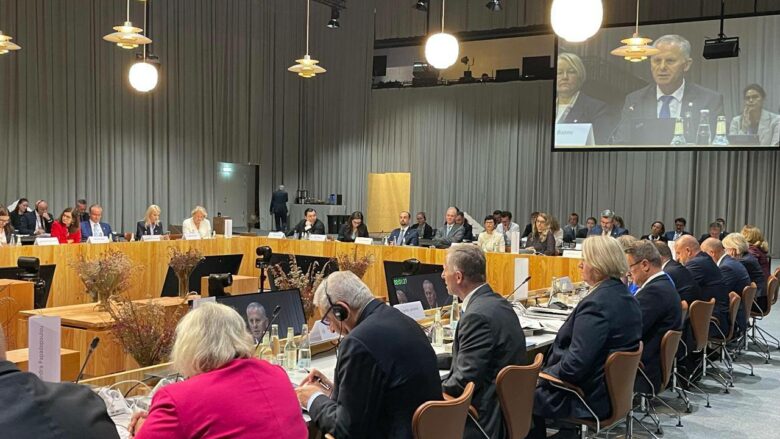Following the informal meeting of EU ministers for European affairs, which also included representatives from the Western Balkans, Enlargement Commissioner Marta Kos said that Montenegro and Albania are the two countries that have advanced the furthest on their path toward EU membership.
Kos underlined that for all other countries the process remains merit-based, requiring significant reform efforts.
“Montenegro has already opened all chapters and is now in the closing phase. Technically, negotiations could be completed by the end of 2026. With the ratification period, Montenegro could join the EU within one to two years,” Kos stated.
Regarding Albania, she announced that the two remaining chapters are expected to be opened this autumn, with technical negotiations potentially concluding by the end of 2027, adding that reforms are progressing well.
On Serbia, Kos expressed strong criticism over its failure to align foreign and security policy with the EU, as well as the lack of progress on key reforms, particularly in rule of law, anti-corruption measures, and media freedom.
Meanwhile, Kosovo was represented by Acting Deputy Prime Minister Besnik Bislimi, who reiterated Prishtina’s call to receive the EU accession questionnaire and be granted candidate status.
“Our institutions have demonstrated a high level of preparedness. It is therefore necessary to ensure a merit-based evaluation, by granting us the questionnaire and candidate status,” Bislimi stressed.







